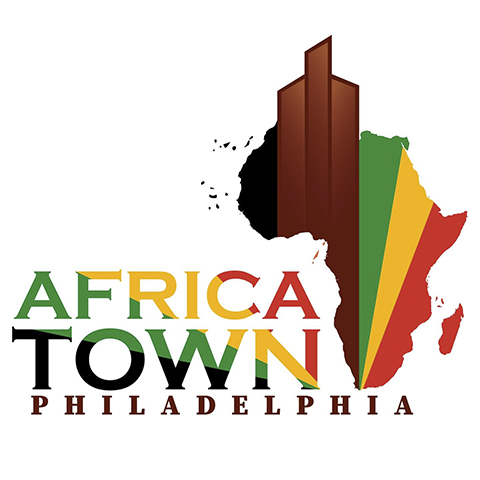PHILADELPHIA—The “City of Brotherly Love” is on the brink of a cultural and economic renaissance with the emergence of Africatown in Southwest Philly.

Echoing the historic and thriving communities of Africatown in Mobile, Alabama, and Seattle’s Central District, Philadelphia’s Africatown aims to be a vibrant hub for Black Philadelphians, brothers and sisters from the African diaspora and the 36.2 million tourists who visit the city annually.
Voffee Jabateh, who heads the initiative, is the CEO of the African Cultural Alliance of North America (ACANA). In a sit-down interview with The Final Call, Mr. Jabateh emphasized the project’s inclusive vision.
“Our vision is to create a welcoming haven for the Black diaspora community—a place they can proudly call home. When we say ‘diaspora,’ we mean inclusivity, ensuring that everyone within the Black community feels represented and valued,” he said.
Mr. Jabateh noted there are over 700 businesses in the area.
According to Mr. Jabateh, the Africatown initiative has garnered substantial financial support from various sources. Lawmakers recently presented ACANA with $9 million in state grants from the Redevelopment Assistance Capital Program to establish the Africa Center, ACANA’s new headquarters. The total cost of this initial phase of the project is estimated to be $16 million.

Additional funding sources include:
$4.5 million in new markets tax credit equity investment from Capital One.
$2.4 million in grants from the City of Philadelphia Commerce Department.
$2.4 million in international investment through the Global City Regional Center LLC.
$2 million in federal grants through the Community Project Funding program.
$1.5 million loan from the United Bank of Philadelphia.
These funds will be supplemented by bridge loans, ensuring that construction can begin promptly while awaiting the disbursement of grants.
Africatown’s vision includes low-income housing, a trade center, a performing arts center, an innovation and technology center, and a medical center. These facilities will address the diverse needs of the community, provide essential services and boost tourism, Mr. Jabateh noted.
The vision for Africatown includes a $16 million headquarters, which will feature a community center, banquet hall, and health center.
Plans are also underway to acquire an existing grocery store on Chester Avenue and bolster support for the Woodland Avenue Commercial Corridor. This comprehensive development effort hopes to revitalize the blighted areas of Kingsessing and Eastwick.

According to a 2018 Pew Trusts study, African immigrants were the fastest-growing group in Philadelphia between 2000 and 2016, with their numbers tripling in Southwest Philly.
This demographic surge has laid the foundation for Africatown, ensuring it is a community rooted in cultural heritage and forward-looking aspirations. Philadelphia is home to Africans from various countries with the majority being from Liberia, Nigeria, Somalia, Ethiopia, and Ghana.
According to myafricanmagazine.com, the area was previously called “Little Africa.”
Amadu Tunkara, a store owner from Guinea, West Africa, expressed his belief in the strength of diversity that the project could attract. “Africa is a beautiful continent filled with incredible people.
However, to truly thrive, we need a sense of togetherness that fosters unity, love, and concern for one another. When we are united, it becomes easier to work collectively and support each other in many ways,” he told The Final Call.
Mr. Tunkara highlighted the need for strong leadership and dedication to fully realize this vision. “This community needs help. It’s essential to have someone willing to make sacrifices for the greater good of achieving unity and collective growth,” he said.
A local barbershop owner who has been part of the community for 27 years, and saw it change from White to Asian to African shared his positive experiences in seeing the development of Africatown. He told The Final Call, “There’s everything you could want in this community—great food, friendly people, and a welcoming atmosphere.
This neighborhood has a diverse mix of cultures, and while we might not all speak the same language, there’s a shared sense of belonging that I appreciate. Despite what others say about moving to wealthier areas, I choose to stay because this place feels like home.”
The 5400 block of Chester Avenue, where ACANA is headquartered, will be known as Dolakeh Square. “Dolakeh” means “people working together to achieve a shared goal” in the Mano language of West Africa, encapsulating the collaborative spirit and vision of Africatown, Mr. Jabateh explained.
He emphasized the importance of unity and collaboration, stating, “African immigrants are not here to take over any community. Leaders like Jannie Blackwell and I are dedicated to working together without discriminating against any race.
It’s offensive when people frame African immigrants within a racial context that has divided us for centuries. We must discourage such divisive attitudes because unity is our strength,” said Mr. Jabateh.

Philadelphia’s Africatown is more than just a project; it’s a testament to the power of community, vision, and collaboration. Jannie Blackwell, a former City Council member and a driving force behind the project, told myafricamagazine.com.
“We’re going to have everything here! I’m honored to be a part of it.” She is also founder and chair of the Mayor’s Commission on African and Caribbean Affairs, the U.S.-based online magazine noted.
“Unlike other ethnic groups, Black communities often face unnecessary divisions. Italian Americans and Irish Americans don’t stress their European origins, and neither do Chinese Americans. Yet, Black individuals frequently face this issue. It’s time to recognize the African diaspora, uniting all Black people in our shared struggle,” Mr. Jabateh added.
“Philadelphia’s Africantown stands as a beacon of hope and progress, symbolizing the strength and unity of the Black diaspora, Mr. Jabateh continued.
“Through collaborative efforts, substantial financial backing, and a vision rooted in inclusivity, this initiative aims to create a thriving community that celebrates and supports its diverse members. Together, we can foster a sense of unity and strength within our community, building a brighter future for all.”













